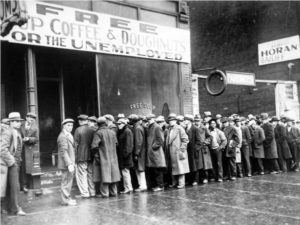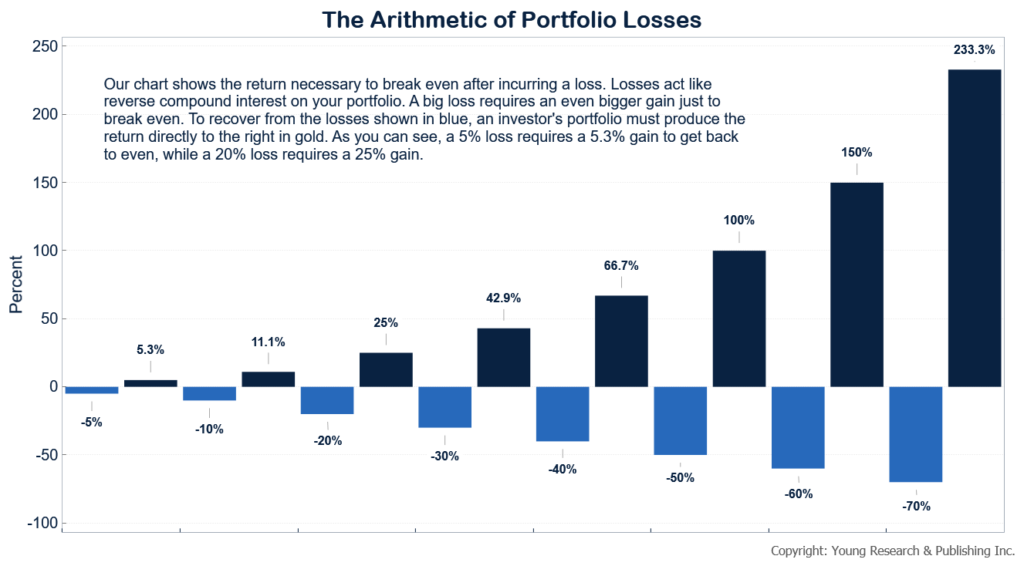In March, President Trump signed an executive order directing federal agencies to identify the threats posed by an electromagnetic pulse (EMP)—believed to be potentially dangerous to critical infrastructure like the electric grid (understatement to be kind)—and find ways to guard against them.
As you have read right here we’ve been sounding the alarm for years.
- Boom—Your Life Changes
- EMP Threat: Be Prepared
- EMP Technology in the Hands of Terrorists
- EMP Attack: When the Lights go Out
- SCADA Vulnerable to Cyber Attack and EMPs
- Is Your Data Protected from EMP?
- Nukes, EMPs, and Asia
- EMP Threat: Cuba Ships North Korea Missile Components: Is a SCUD in a Bucket Next?
- Ten Items You Must Stockpile In Case Disaster (say an EMP attack) Strikes #1
- EMP Attack: No Power for Two Years
- VIDEO: EMP – Segment from “33 Minutes”
What can you do today, right now, or this weekend to put your family in a position of strength? Because having experienced days without natural gas ie: no heat on the coldest week this winter, I can tell you daily life as you know it changes quickly when basic services are wiped-out. Fortunately, we had a plan B and holed up where natural gas service was uninterrupted. But I remember how helpless I felt sitting in my car, waiting for National Grid to arrive, and watching them drive away for the night and not knowing when we’d be back online. It’s not a good feeling.
The fact that President Trump has signed an executive order for an EMP threat makes one wonder what they know that you and I don’t. As your Survival Guy, I’m taking action and urge you to do the same. Make no mistake—you will not have time to react. What is your plan A, B, and C? Do you have an evac plan? Do you have water stored and water ready to roll if you need to pull out of town?
This weekend, go to Walmart. Go to your local hardware store and scour our website on EMP prep. Do you have plenty of batteries, duct tape, and is your satellite phone charged? Are your vehicles filled with gas? If they’re still able to run you may need to drive beyond your local 7-Eleven, because the pumps will not work. Perhaps you’ll be lucky enough to drive to safer ground. Do you have cash? You’d better. ATMs will not work, and nothing works faster than cash in any transaction. Forget Apple Pay.
We’ve also spent years writing to you about getting your guns and your training. Everyone in our family has proficiency with a rifle. Yours should too. Just this week the local paper ran this headline:
“Council takes aim at gun bills”
Blue states across the country are coming after your guns. They argue that you don’t need a high-capacity magazine or a military style rifle. They have no clue that most handguns today would be considered high capacity and military style. And the vast majority are semi-automatic. It does not make them more dangerous. The Founders didn’t give us the Second Amendment to go hunting by the way.
Now is the time to do the important work of getting your family prepared for all types of threats, including EMP and an encroaching government because it will not get easier “down the road.” Imagine the information you and I are not getting, and quickly one understands the importance of taking this executive order with grave concern.
Tucker Explains: Poverty Doesn’t Cause Instability. Envy Does.

You don’t need to be rich to live the good life. The good life is more a way of life. Not to sound too trippy but “it’s a feeling, man.” Sort of like the peace and love shared by Deadheads swaying to Jerry, or classic rock fans to Hendrix at Woodstock.
You can’t always explain why you feel a certain way. You just do.
That’s how it was for me growing up. I just felt good about my family. I liked my friends and life was good. But we weren’t rich. And it didn’t matter. We didn’t talk about our place in society. We were middle class and our place was a small single level cape in Mattapoisett.
We were a happy family.
We went on ski vacations. But we didn’t fly-first class to Vail. We drove ten hours to Quebec. Because in the 80s, the dollar went even further than the ten-hour ride.
Disney World? Check. Did it. More than a few times. But we didn’t fly first-class. Heck we didn’t fly at all. We drove. In our camper. A 21-foot refrigerator on wheels. Winnebago called it the Brave. They somehow knew you had to be to own one.
I remember the Hoop Dee Doo Revue, tubing at River Country and breaking down on the George Washington Bridge on the way home.
One of the happiest days of my life was seeing how happy my dad was when he said to us on the sky gondola at Disney “this is the best place in the world for kids.” He believed it. We did to.
But today that happiness in families seems to be fleeting because the middle-class is shrinking.
In his book, Ship of Fools, Tucker Carlson talks about the middle class of the 80s, and how it wasn’t unusual for this huge swath of lower to upper-middle-class Americans to cross paths at McDonald’s, check in to a motel, or drive long distances for a vacation. It’s what you did.
But times have changed. And not in a good way. Because the middle-class is vanishing—the feeling that our kids will do better than us.
Today it’s the elites calling the shots. I use that word elite not as a compliment. Hardly. It’s the elites running Washington and the nation’s boardrooms, and it’s a diminished middle-class paying the price.
We can talk until we’re blue in the face about the loss of small-town America. But if the elites in America don’t understand the country you grew up in, how will they ever? How do you explain a feeling to a group so numb from another face lift they can’t feel their lips, never mind your feelings?
Who has time?
Here’s an example. Most of my day is spent working with investors like you. The rest of my day is spent with my family. And when I’m not working I’m with them at their games, at home or the occasional vacation. I didn’t work in the town I grew up in like my dad did as a realtor or my mom teaching sixth grade. I went to Babson, got a job at Fidelity and worked in Boston.
I didn’t have time to forge relationships in my new hometown because I was working all the time. There are only so many hours in a day.
The problem with this is all of the time my family spent developing working relationships in my home town were basically gone. All of the time I spent in Mattapoisett for example going to school and being with friends was the past. But when I would go to the post office as a kid with my dad, he knew everybody.
“Hi, Randy” someone would say to him.
“Hey, Joe, how are you today?” he’d reply.
I remember asking him how he knew so many people in town, and he would tell me it was from his work. And then he’d tell me all about Joe. How do you explain what a 5,000 piece jig saw puzzle looks like talking about the intricacies of one piece?
What my parents and others in town had was trust, or at least an understanding of where one another stood on certain issues. It’s something that’s created over many years. Time is a most valuable commodity.
The backbone of America is our small towns and our small business. But it begs the question, how can they thrive when no one knows each other? When there’s no time for trust to be developed over living together for a lifetime.
That is at the root of Tucker Carlson’s comment about a country measuring its greatness through GDP. It’s idiotic. Because it leaves behind so many Americans.
Tucker is speaking from the heart about a feeling that is lost in America.
He’s not coming from the right or left, he’s talking about right vs. wrong. The abandonment of our small-town roots is wrong. A small group of elites ruling our government and corporations is wrong. They don’t relate to you and me. They fly private to their private ski mountains and turn their nose up to Disney World and call their Americans fat and stupid.
Tucker is making a case that’s more about Woodstock, man, than common stocks. Poverty doesn’t cause instability. Envy does. And the election of Trump and the reelection of Trump is a message to the elites.
But so is the socialist groundswell. Alexandria Ocasio-Cortez hits the same nerve as Trump has hit. It’s called the screw you nerve, and it votes. But who wins in AOC’s Green New Deal America? Certainly not small towns or businesses.
What Tucker is fighting for every night is for small town America, where you don’t have to be rich to live the good life. It’s a feeling that our country was founded upon. It may not be easy to explain, but it can be explained. Some might call it love. Somehow our founders were able to get that feeling down on paper.
The Arithmetic of Losses: A 68% drop this Century
In his April 2000 issue of Dow Theory Letters, the late-great Richard Russell wrote about the arithmetic of losses noting that Nasdaq had dropped about 68% from the previous year’s peak. To get back to even, he noted, Nasdaq would have to climb more than 170%. As many of you know that didn’t happen for a long-long time.
“Note that CNBC,” explains Russell, “and many other sources continue to talk about a stock’s climb in percentages. But this can be misleading and frustrating. Example: you buy a stock for $50. In the bear market it drops to $2—you’ve lost $48 plus commissions.
Then you hear on CNBC that your stock has risen 50%. That’s fabulous, your stock is up 50%. But what does that mean? It means your stock which has dropped from $50 to $2 and now up 50%–is selling at $3. Big deal—your stock is up 50% but it’s still miles away from recovering.”
I had a constructive conversation with a client recently who lives in New York. We were reviewing his allocation to make sure it was right for him. We talked about the advance in some of the tech stocks and if his exposure was appropriate.
“Did he have enough in stocks?” He wondered.
We talked about that for a while.
And what it came down to was family.
Would his family be that much better off if his portfolio goes up 15% compared to 10%? Probably not. But life would change if he lost 15% or more as we’ve witnessed in some brutal stock market crashes—two already this century.
Don’t waste your time wondering what could be or could have been. Focus on your life. Focus on what you’ve made. And don’t ever forget what it feels like to lose money, because losing money changes more than your bottom line. It’s a killer.
Survive and Thrive this Month.
Warm regards,
E.J.,
“Your Survival Guy”
P.S. If you want an inside look into how money is lost then read Bad Blood by John Carreyrou. It reads like fiction about blood testing start-up Theranos and its founder Elizabeth Holmes where high profile billionaires and investors with “access” lose every penny invested.
P.P.S. An incredible 48% of Americans aged 55 and older haven’t saved a thing for retirement. I’ve asked the question “How Many “Retirees” Will Keep Working?” and it appears that the answer is, a lot. Despite this disturbing proportion of Americans who haven’t saved a bit, the numbers are actually getting better. In 2013, the percent of older Americans who hadn’t saved anything was 52%.
P.P.P.S. According to Reason’s Jacob Sullum, New Zealand’s new gun ban would be unconstitutional in the U.S. He writes:
American gun control supporters are citing the firearm restrictions that New Zealand’s government plans to impose in response to last week’s mass shootings at two mosques in Christchurch as an example that should be emulated by American politicians. But the broad gun and magazine bans that legislators expect to enact by April 11 would never pass muster in the United States. If we can learn anything from Prime Minister Jacinda Ardern’s reaction to the attacks, it has less to do with the merits of her policies than with the slippery language she used in announcing them.
“The guns used in these terrorist attacks had important distinguishing features,” Ardern said at a press conference in Wellington today. “First, big capacity, and also their delivery. They had the power to shoot continuously, but they also had large capacity magazines.”
Contrary to that description, the guns used by the perpetrator of the mosque attacks, which killed 50 people, did not “shoot continuously.” They were semi-automatic rifles, meaning they fired once per trigger pull. And while Ardern referred to “important distinguishing features,” the only one she mentioned (twice) was “big capacity,” which is a characteristic of the magazine rather than the gun itself.
Ardern does plan to ban “high-capacity magazines,” meaning those holding more than five rounds. There will be an exception for magazines holding up to 10 rounds of .22-caliber or smaller rimfire ammunition.
Ardern also intends to “ban all military-style semi-automatic weapons” (MSSAs), which under current law include semi-automatic rifles that have pistol grips, folding or telescoping stocks, bayonet lugs, flash suppressors, internal magazines holding more than seven rounds, or detachable magazines that have “the appearance of holding more than 10 cartridges” (15 for .22-caliber rimfire ammunition). MSSAs already require a special license. Ardern wants to make them entirely illegal, and that includes firearms currently owned by license holders, who will be required to surrender them. They are supposed to receive compensation, but this “buyback” won’t be optional.
Download this post as a PDF by clicking here.






